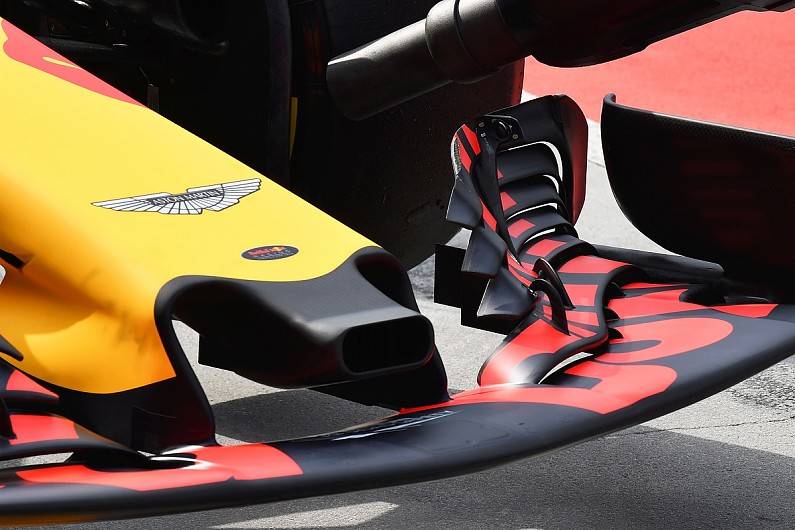Products You May Like
Get unlimited access for free
You have only 5 articles remaining to view this month.
Formula 1’s front wing rule changes cost Red Bull €15million but it has already recovered a large amount of performance, says the company’s motorsport advisor Helmut Marko.
F1’s 2019 changes include simplified front wings and bargeboards in a bid to make it easier for cars to follow, which in turn should lead to closer and better racing.
Red Bull was a vocal opponent to the decision to push through those changes in May last year, citing a lack of reliable data to support it and the financial impact it would have.
Marko told Autosport that while the front wing would improve F1’s overtaking prospects, despite a performance level “already at the standard” of mid-2018, “we are €15million poorer”.
“We have the same [aerodynamic] data as last summer,” said Marko.
“By the time we get to Melbourne we’ll probably be better than that.
“[But] there is now a good basis for discussion between Mercedes, Ferrari and us. We agree that regulations must not be determined by technicians.
“As soon as technicians are involved, the costs increase and everything becomes complicated.
“Things have to be specified.”
Marko said the rule change was “mainly done on the initiative of Mercedes”, F1’s double world champion team for the past five seasons.
He said: “Everyone can see how difficult it is for Mercedes to overtake when they are behind [another car].”
Despite frustrations over the nature of the 2019 changes, Marko said Red Bull’s political relationships were stronger than before.
As well as a good relationship with Mercedes, Marko claimed that “a lot of sympathy” developed between Red Bull and Ferrari following the death of president and CEO Sergio Marchionne last summer.
This could be significant for F1’s leading teams if they can align themselves on key issues in F1 as talks continue over much more fundamental rules changes that are planned for 2021.
F1’s owner Liberty Media has reached an impasse with its intended regulatory overhaul that is meant to encompass major amendments to how F1 is governed, the way teams receive financial payments and the technical regulations.
Marko pointed to a lack of progress on budget caps and engine rules as an example of Liberty failing to agree a way forward.
“I believe that by not deciding anything we are slowly reaching a critical phase,” he said.
“If I am Liberty, a listed company that acquired its shares at a very high price, then I will at some stage need to explain to my shareholders what I expect 2021 to look like.
“What are the revenue opportunities, how is it going to continue?”
